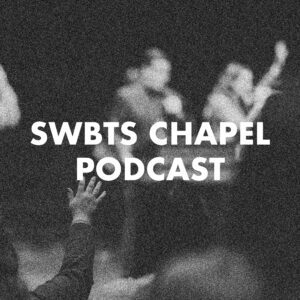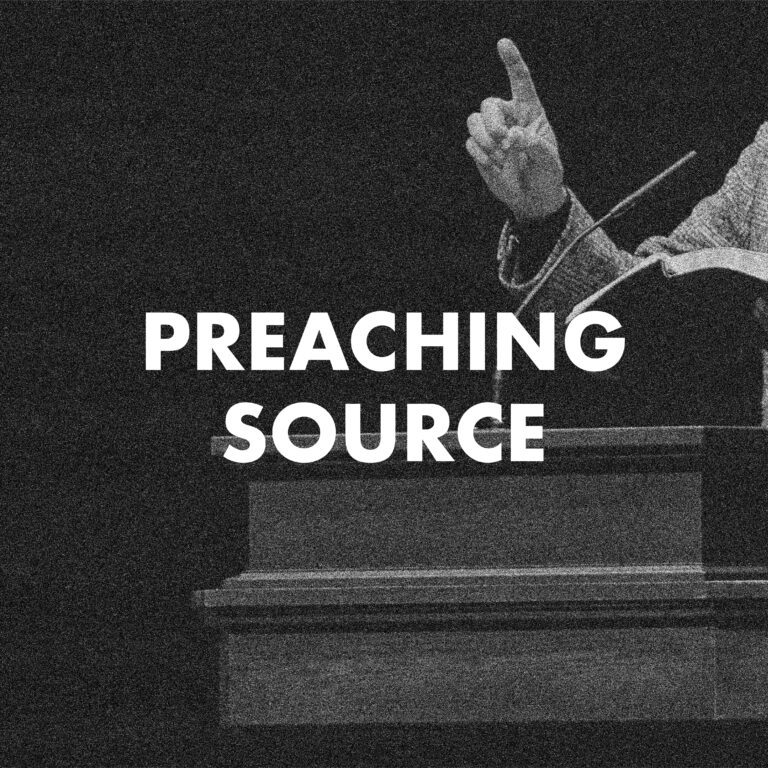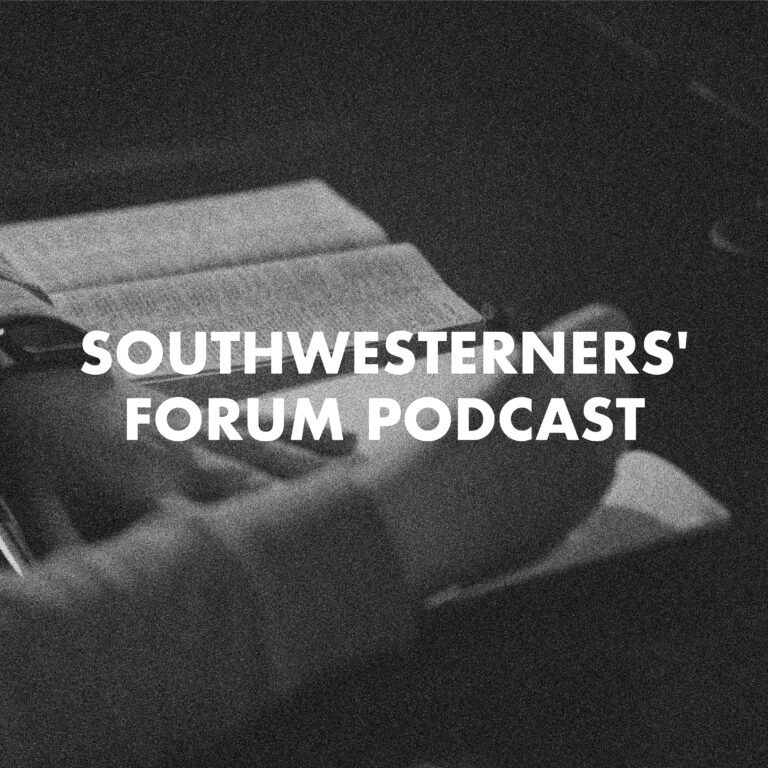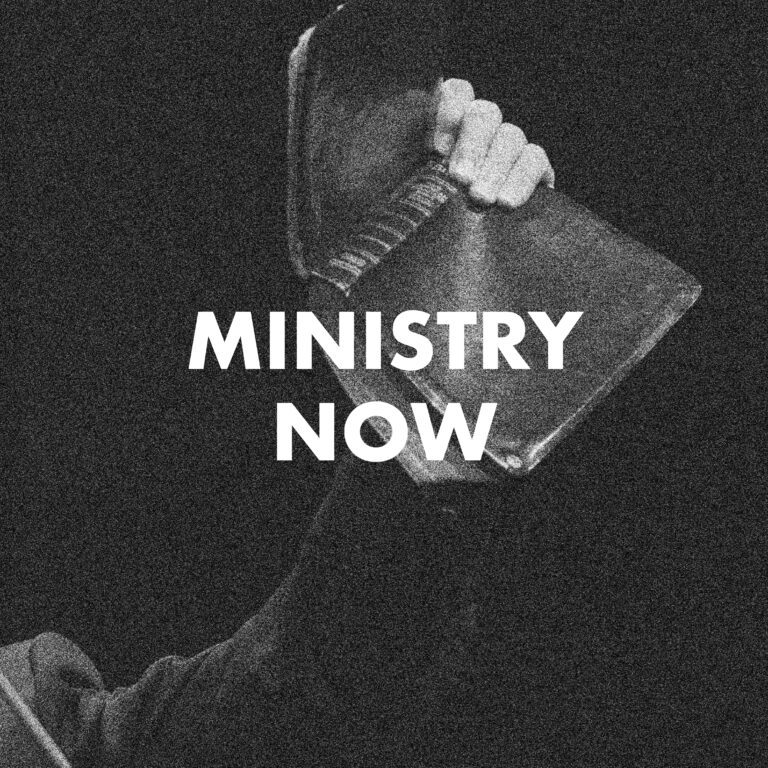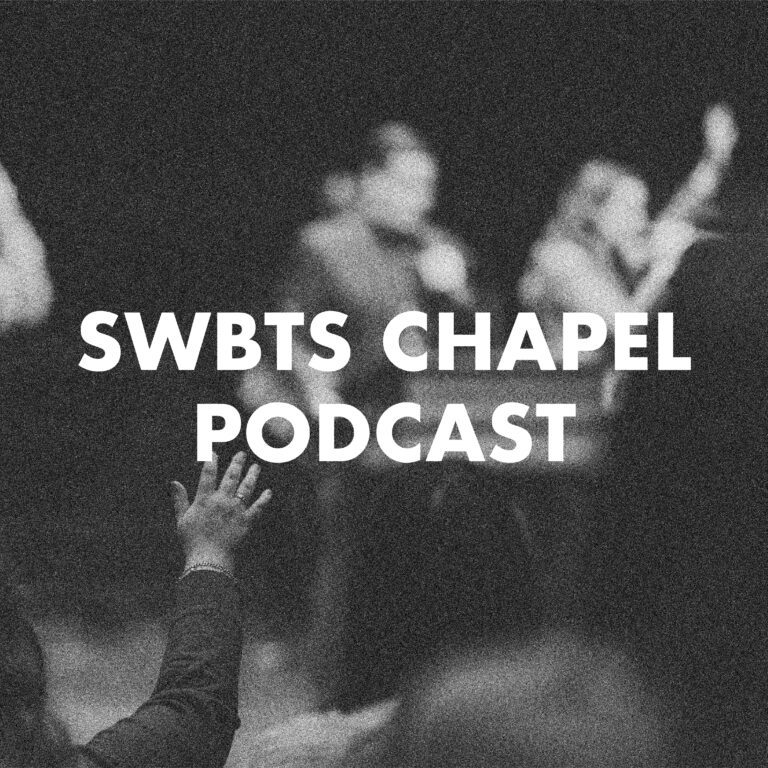Dan Darling, Assistant Professor of Faith and Culture, and Director of the Land Center for Cultural Engagement, preached from Psalm 139 in SWBTS Chapel on November 14, 2024.
The following is an uncorrected transcript generated by a transcription service. Before quoting in print, please check the corresponding audio for accuracy.
Good morning. It’s great to be here this morning, and it’s a tremendous honor to be asked by Dr Dockery to preach in chapel this morning on this great psalm, Psalm 139 if you have your Bibles and we turn there and just want to say a word of thanks again to Dr Dockery for the honor, and I consider it a tremendous privilege to be a part of what God is doing here at Southwestern seminary, be part of the great tradition and legacy, and also what God is doing today to equip young men and women to take the gospel around the world. And tremendous privilege to work for Dr Dockery, whom I have long admired and continue to admire for his leadership and stewardship, particularly in this season.
So, we’re in Psalm 139 I’ve enjoyed all the messages in this series and some really great things that I’ve learned from all of my colleagues teaching and preaching on the Psalms, and I’m glad to present Psalm 139 today. When I ask you a question, as we think about this psalm, what does it really mean to know someone? To know someone, it can mean a few things, right? When I was in college, early 2000 I think it was year 2000 I was in college, and George W Bush was running for President, as you know, and he was campaigning in my home state of Illinois, where I lived, and a friend of mine, we didn’t have texts back then, somehow he got a hold of me and said, Hey, George Bush is going to be in our state. We should go see him.
So, he was at a high school nearby, and so like two college kids, we just got in our car and we went there. We didn’t have tickets, we didn’t have anything. Somehow, we got in and we pushed our way to the front of the line. We probably trampled some really innocent people to get to the rope line, you know, to see George W Bush. And I just remember stretching my hand out as far as I could and sort of like touching his fingertips, you know, and thinking, Man, this is so cool. Well, from then on, I’ve been able to tell people I met the president, you know, like, like we’re best friends or something. But I’ve read books about Bush, I’ve gone to his library a few times here. But do I really know him? Does he really know me?
Zoom in a little bit. Occasionally, I’ll have a colleague, or a friend ask me about an author or somebody, and they’ll say, Hey, do you know this person? I’ll say, Yeah, I know them. And what I mean is, I maybe have met him once at a conference somewhere, and we had lunch. But do we really know each other. I’ll zoom in a little bit more, a little bit more. My wife’s here today, Angela is here today, and we’ve been married for 20 it would be 22 years next week. And if you asked her, do you know Dan, she’d say, well, of course she knows, for instance, that I’m a hopeless fan of all the Chicago sports teams. She knows I like to drink black coffee in the morning. She knows I like to wear fishing shirts whenever I can that I love Cracker Barrel. She knows I think pineapple on pizza is for communists or Californians or both.
But today, in this majestic psalm, Psalm 139 we read of King David offering a kind of knowing that is deeper and higher than any of our deepest human relationships. We read about a God who knows us and sees us, who created us, who fights for us. In the first part of Psalm 139 King David is describing God’s omniscience, a God who sees and knows. David is saying God knows everything about him when he sits down, when he stands up, the sitting and standing can mean a few things. It can mean the ordinary rhythms of everyday life, meaning that God sees and knows us, even in the ordinary moments of life that we rarely think about, our sitting, our standing, that God is in the ordinary he doesn’t miss anything. But it can also mean something deeper.
I think it can mean that when you are made to sit down, when you are brought low by life, when you are pushed down or fired or not picked for the team or the appointment or the opportunity, when the resume is thrown in the shredder, when the email is unanswered, when The door is not opened, that God is there. It may seem that nobody sees you, but David is saying, the God of heaven, your God, He sees you in that moment, and he sees when you’re exalted, when you’re on stage, when you get the byline, the headline, the front of the line. Line when you’re chosen for the opportunity, when you land the job, when you’re promoted. But God sees that too.
He’s also saying that God knows us more than we can know ourselves. He says you have searched me and known known me. It implies an intentional knowing when God says he knows and sees in the Scripture, it’s not just an awareness, right, but it’s a knowing with the intent and purpose to act. When God saw Israel in bondage, it wasn’t just that he was aware of it, that he read it on the news somewhere, is that he saw them and knew them with an intent to do something about it. God knows us more than we know ourselves. He says, you’re aware of all my ways, and before a word is on my tongue, you see, we don’t even know all of our own ways. We don’t even know ourselves. We don’t I mean, this is why we hire therapists and counselors and psychologists to probe deep within us, to help us know ourselves. We take personality tests.
Some of you are making it a calling, an important calling, to be a counselor, to help somebody know themselves with the help of the spirit. Sometimes others know us better than we know ourselves. They see our blind spots, but God knows us. Knows everything about us more than others know about us more than we know about ourselves, and this is why the psalm ends with God. Search me. You see to know about ourselves, we ultimately need to know God. But it says he doesn’t just know us. He sees us. He sees us. The second part of this chapter, he says that God sees us. He’s saying, David is saying, there’s nowhere that we can hide from God. And judging from the tone of the Psalm, I think David is admitting that he’s tried to hide from God. We don’t know when the Psalm was written, but we do know that David did try to hide when he covered up his sin with Bathsheba.
He thought God didn’t see that part of his life. We knew that he hoped God wouldn’t see when he numbered the people in disobedience. No God saw that too. This is God’s ability to see all things. Da Carson says this. He says, it’s not only rebellious, but stupid to try to run from God, to shake our puny fists in his face and say, with Frank Sinatra, I did it my way. This is not a mark of independence. It’s sinful rebellion. And worse, its Frank stupidity, for where shall we flee from God? Where shall we go to get away from him? Even our ability to speak is from him, and always say, comes from his sustaining power. Adam tried, Jonah tried, Paul tried, you and I have tried to hide from God. Listen to the words of Hebrew chapter Hebrews chapter four, verse 13, says, no creature is hidden from him, but all things are naked and exposed to the eyes of Him to whom we must give account.
Augustine said, since we cannot flee from God and His judgment on our sins, we should flee to Him and confess our sins. But you see, David doesn’t see God’s omniscience and omnipresence as bad news. He sees it as good news. God’s knowing and seeing is a refuge to David. He says this wonderful news is too lofty for me. I’m unable to reach it. You see, this is not a Psalm of fear. This is a Psalm of praise, because David knows God. The fact that God knows him is one of delight and praise. You see, if you truly know God Him, knowing you and seeing you isn’t one that invites fear, but gladness, because God has made a way for us to know him through his Son, Jesus Christ. And this is hinted at it in the Psalm. Consider David saying that if he goes up to heaven, God is there, and if he goes down to Sheol, God is there. In one sense, this is an acknowledgement that there’s no running. There’s no escaping God’s presence. Right, east to west, as far as your eyes can see on the horizon, either way, you can’t run. But another sense this should make us think of Jesus.
Sheol is the temporary place of the dead where souls await either the final judgment or final resurrection. And in Luke, Jesus tells the story of the rich man and Lazarus, who are in. Separate compartments, one awaiting resurrection and one awaiting judgment. First, Peter says that Christ, in His death and resurrection, preached to the souls in prison. In other words, Jesus did as the apostles. Creed tells us descended to the dead and he liberated his people and will one day rise us up with Him, body and soul, and he’s taking us to heaven. In Ephesians, we read that our spiritual state is one of being in the heavenly places in Christ, Jesus, in other words, if you are in Christ, you’ve gone down to death and you’ve been raised up to new life. If you are in Christ, you can cling to that promise.
I will never leave you or forsake you. I just want you to grasp, brothers and sisters, the full weight and the wonder of this passage. To be known and seen by God is the most important thing about you. To be known by God is not that he has some passing knowledge of you. It’s not that he heard of you. It’s not that you ring a bell in his mind. But to know, to be known by God is that He is acting on your behalf. To see, to be seen by God is not that he catches a quick glance of you out of the corner of his eye, but that he truly sees you. You see, we live in a world where being seen is currency, right? Our media platforms are calibrated on this, the attention economy. People pay millions of dollars for eyeballs for people to see them. Brands pay so much money for people to see them. People do whatever it takes to be seen. People will create fake online personas to be noticed. They’ll do all kinds of things in order to get views on YouTube or likes on Instagram or attention on TikTok. Even Christian pastors will say extreme things online that they might not even believe in order to get impressions and visits and clicks and attention. People want to be seen.
This is not new, of course, to be known to know and be known to see and be seen has been with us since the beginning. People jockey and muscle and move around to be noticed and seen to have attention. But I want to tell you, Christian, you don’t have to find your validation in this temporary, fake, fleeting attention, because you’re known by God, the God of the universe, and you know God, you are seen. Maybe you’re here today, and you feel like nobody sees you. Maybe you’re a student, and you wonder, does anybody see me? I came here on faith. I don’t know anybody. I don’t know if I’m the smartest person. What am I even doing here?
Maybe you don’t feel seen in your classroom or in your dorm room or in your family or in your community, but you know, if the Lord, he sees you, he knows you. He loves you. And here’s the comforting news, God sees us both at our best and at our worst. He sees the part of us that we want to hide from the world, the part of us we’re ashamed of that makes us feel smaller than everybody else. The Gospel tells us that while we were yet sinners, in other words, while we were marinating in our sin and enjoying it at our lowest of low points, and while we were yet sinners, Christ died for us. Jesus, the Hound of Heaven, came looking for us in our sin at our worst.
I think of Adam in the garden, naked and ashamed in his sin, with his feeble attempts to cover himself, and he hears the voice of God who says, Adam, where are you? This is not God losing his son in the mall. This is God not needing life 360 like we do to keep track of our teenagers. God knew where Adam was. These were words of grace. These are words of grace. God pursuing Adam at his worst. And so, it is. God came to find me and you like that. Maybe it was in church one day as you understood the gospel and walked the aisle. Maybe it was in your workplace, if a friend shared the gospel, maybe it was in a moment of crisis where you were in total despair, and you reached out to God.
God came for you in your despair, he went after you. As the poet Francis Thompson said, like the. Hound of Heaven. Again, you may be sitting here as a Christian and you may feel invisible to the world around you. May feel inferior to those around you. You may not feel as smart as your colleagues. You may feel not as put together as your coworkers and friends. You may not feel like the parent that you should be, at least what your friends display on Instagram. You may not feel as accomplished as others. Maybe you feel alone or left out or abandoned, but the God of the universe, who hung the stars and upholds the world by the Word of His power, David says he knows you and he sees you.
David also says, even in the dark, in this passage, he says, even in the dark, even in times of utter crisis, God sees us. Have you ever been to a place where it seems so dark and so awful and terrible? God sees you there. He sees you there. I think of job who said, job 23 who was in such despair he couldn’t see God. You ever been like that? He couldn’t see God anywhere. In his circumstances, he was a righteous man who loved God, and he couldn’t see God anywhere. And he says, if I go east, he’s not there. Can’t see him. If I go west, I can’t perceive him when he’s at work. To the north, I can’t see him when he turns south, I can’t find him. But what does Job say?
Yet he knows the way that I have taken and when he has tested me, I will emerge as pure gold. In other words, David and job are both saying, there are times when life is so hard and so difficult and so dark, I can’t see God and I cannot see what he’s doing in my life, but I know that he sees me. That’s the essence of faith. Or at St Patrick, wrote, Christ with me, Christ before me, Christ behind me, Christ in me, Christ beneath me, Christ above me, Christ on my right and on my left. Christ when I lie down, when I sit down, Christ when I arise. Christ in the heart of every man who thinks of me, Christ in the mouth of everyone who speaks of me. Christ in every eye that sees me, in every ear that hears me. Are you in that season now? Are you in a dark place where it’s hard to imagine God is there?
David says that God is there. He sees you, even if you cannot see him again. Augustine says, for it is night so long we are passing through this life. How was the night made light because Christ came down into the night. We read in John one that light has come into the world and darkness has not overcome the light. Friend. What a precious promise that is when you scan the headlines, when you see the dark images of suffering and pain around the world when you know people experience the pangs of death and disease, or maybe you’re enduring that right now, to know that Christ has come into this world as the light, and he has conquered the darkness. What a great promise that is. So, we not only see a God who sees and knows.
David also describes a God who creates, a God who creates there’s a gravestone in Mount Olive seminar, Mount Olive cemetery in Fort Worth, and it bears some of the words of this psalm, I will praise you, for I am fearfully and wonderfully made. These are that’s the gravestone of my late mother-in-law, Linda. And this was her life verse she repeated to herself her entire life and when, when her husband left her as a single mother, she repeated it to her. She when she had to make, when she had to make ends meet and work two jobs to support her family, she repeated it. She repeated it to her daughter, who’s my wife, and we repeat it to our kids. David took comfort, not only because God saw him and knew him, but because the God who saw him and knew him was the very God who made him.
We can learn a couple things from this most beautiful, really, one of the most beautiful of all Bible passages. Here, first we learn how precious God considers human life. Here he assigns personhood at the very earliest stages of conception. He says, when he was curiously wrought in the uttermost parts of the earth. He said, you saw me when I was formless. And yet it has personhood. It’s a baby at the earliest moments of conception. Is not a blob of tissues or a clump of cells or a fetus, as we so flippantly say.
But there’s humanity. There’s you. There’s humanity assigned to every human. David says, in every pregnant womb, as a human being knit together, crafted with care, not by evolutionary processes or by the random romantic collision of two human beings, but by the very hands of God. You do realize, I hope you do. The Bible’s description of human dignity is the richest in all the world. It’s one of Christianity’s best gifts to the world. Other religions and other philosophies sort of hint at it, but only the Scripture, the Christian scripture, has the fullest expression of what it means to be human.
Consider how Genesis describes the creation of human. Moses says that for all of creation, God spoke the world into existence. But then Moses slows down his narrative as he gets to the creation of humans. And he says, let us create man in our image, implying this, this consultation of the Godhead. It says that God reached with his hands and sculpted humans from the dust of the ground and breathed into humans the breath of life and stamped on humans his image of all of God’s creative acts. Humans are his highest creation. Psalm 8 says that humans are crowned with glory and honor. Of course, today, science tells us what David declared 1000s of years ago, that humans at the earliest stages of existence have unique DNA, that they can feel pain, that they have heartbeats. And here’s the reality we all know that there’s humanity in the womb. We know, despite what we tell ourselves, despite the clinical language we use, like reproductive rights or health care, we know there’s a human being there, worthy of life. We know it.
Think about the way we announce when a celebrity gets pregnant when we’re forgetting the abortion debate, it’s almost always announced as so and so is expecting a baby a human. My friends, the world around us may not see it or recognize it. Our political parties on both sides may avoid it, but God says right here, and we know it. Every child conceived is a gift from God, knit with care by his loving hands. There are no wasted human beings. There are no disposable people. Francis Schaeffer said the dignity of human life is unbreakably linked to the existence of the personal, infinite God. But here’s something else this passage tells us, David wasn’t just saying that God has carefully crafted every human being, but he makes it personal. He says, God knit me in my mother’s womb. God knew me in the other most parts of the earth. I have been remarkably, wondrously made, and so my friends, so were you. Yes, you, in other words, you’re not here by accident, by happenstance.
You’re here because God wanted you here. He knows the circumstances of your conception. He knows the family that you were born into, however broken and dysfunctional, however messy. You see, there are no wrong side of the tracks, because God laid down those tracks. I know some of you are here today and you’re wondering like, should I even be here in seminary, in college? I didn’t come from the right family, I don’t have the right connections. I want to do ministry, but Will anybody ever take a chance on me? Bibles? Bible says you’re not an accident. You’re here on purpose by God.
Derek Kidner says that God not only sees the invisible and penetrates the inaccessible, but is operative there, the author of every detail of my being, every detail, every single detail. Maybe you hate yourself. You think I wish I was born into wealth like my friends. I wish I was taller, shorter, prettier, skinnier, more athletic, more witty, smarter. David says that God made you fearfully and wonderfully. And not only that, this says that God knows your future. He says, all my days were written in your book and planned before a single one of them began. He sees all your days, the days you can’t see yet, the future you’re scared about. He says you can trust God with your unknown future, because you’re known and you know you’re known by, and you know the God of the universe.
And lastly, David says, we have a God who fights for us. We have a God who fights for us. He knows and sees us. He made us. And then he fights for us. He not only takes pleasure David does, and a God who sees him and knows. Him, but he takes pleasure in a God who fights for him. In verse five, David says, you encircle me and have your hand on me. And verse 10, it says, your right hand will hold on to me. And the rest of this chapter, the last part of the chapter, David ramps up. Ramps it up. He closes with an imprecatory prayer. He’s praying for God to destroy his enemies, and, by extension, God’s enemies. It seems a little discordant with the rest of the chapter, but you see, it’s not you see, when you read it in precatory Psalms, David is not acting this out. He’s bringing this to God. He’s leaving vengeance to God. He’s submitting this to the Lord.
Some have speculated that maybe David wrote this after he was falsely accused of something or maligned. We don’t know, but it would make sense. You see, this will happen to you over the course of your life, you will be falsely accused. You will be maligned, especially if you go into ministry, you will have people treat you unfairly, betray you, even seek to harm you. And if you have not rested yourself in the knowledge that you are known by God, and that you know God, that He made you with purpose, then you will seek to fight those battles instead of letting the Lord do your work. This is why Jesus says we can pray for our enemies. David wasn’t seeking self-indication. He wasn’t going on a revenge tour to make sure everybody knows he was in the right. And said God was his refuge. His identity was not in his reputation, but in the Lord. This is one of the most important things I’m telling you.
This is one of the most important things you can learn if you want to serve God, well, if you want to lead Well, I’ve seen up close and personal the damage done by insecure leaders who constantly have to prove themselves, who sweat every critique. But if you know God, and you’re known by God, that’s the most important thing about you, you can rest. You can let God fight for you. And notice David says here at the end, Search me, God. Find any wicked way in me, there’s a humility of heart, even as he’s praying this imprecatory prayer, even as he’s bringing his angst and his anger and his frustrations to God instead of to everybody else, instead of acting it out on himself, instead of trying to get his own vengeance, he’s saying, No, I’m known by God. I know God. I’m seen by God. I’m made by God. And he’s the one who fights for me. He’s the one who hems me and takes care of me.
But even at the end, he says, he closes with search me God and find any wicked way in me. There’s a humility to say, I may not be right about everything my perspective, I may have blind spots. I think I’m in the right here, but maybe I’m not. I don’t want to be so sure, God search me and let me know, reveal to me what my sins are, so I may confess them.
So, in closing, I want to press this on your heart, my friend, there will be times in your life when you feel unseen, unnoticed and unloved. Maybe you’re kind of a middling student who you think everyone else around you is a scholar, and you’re struggling to just keep up. Maybe you’re single when it seems everyone else is paired up and ready to have a ring by spring. Or it could be in a few years when you’re serving in a tiny church somewhere, and you’re doing your best and you have friends that are serving at some bigger church and some place that’s just blowing and going. And you think, man, does God even see me? Is there anything of value here, of what I’m doing?
I want to say God sees you and God knows you. God found you when you were a sinner, when you were like Adam in the garden, naked and ashamed in your sin, God didn’t leave you. He went after you like the Hound of Heaven at your worst. He sees the parts of you don’t want anyone else to see. He sees the uncurated version of you, and He loves you. That’s the you that He died for. And if the psalms are the Christians hymn book, may this hymn be the soundtrack of your life. I know God. And I’m known by God. He sees me and he knows me. He made me the way I am, and he knows my future, and he fights for me. Let’s pray.
Lord, we’re so thankful for the promises you give us in this beautiful psalm of Psalm 139 Lord may we memorize these words and etch them on the corners of our heart. May we live this way, Lord, and may we seek to know you and to fully understand how it is that you know us. And Lord, we pray for these students who are going out to share the Good News of the Gospel for those who do not know you, who are alienated from you because of sin, that they may know you in your name, we pray amen.
